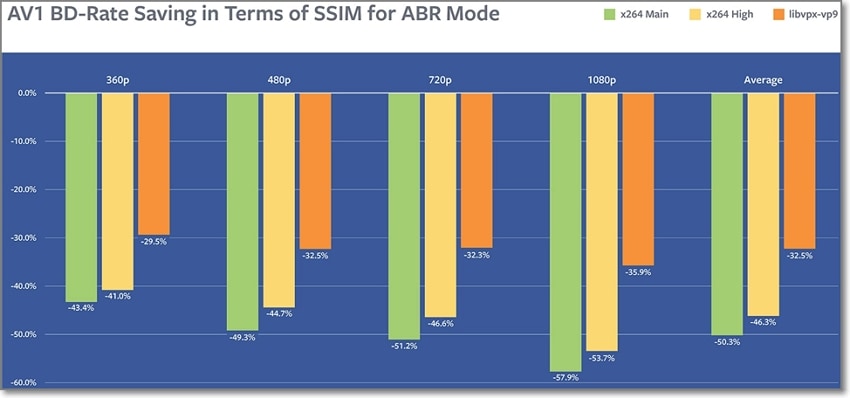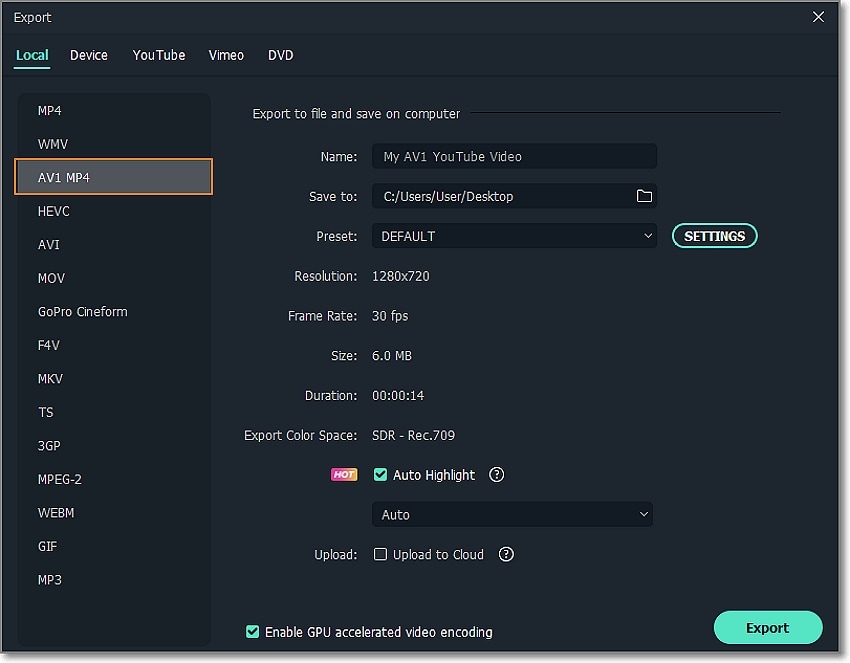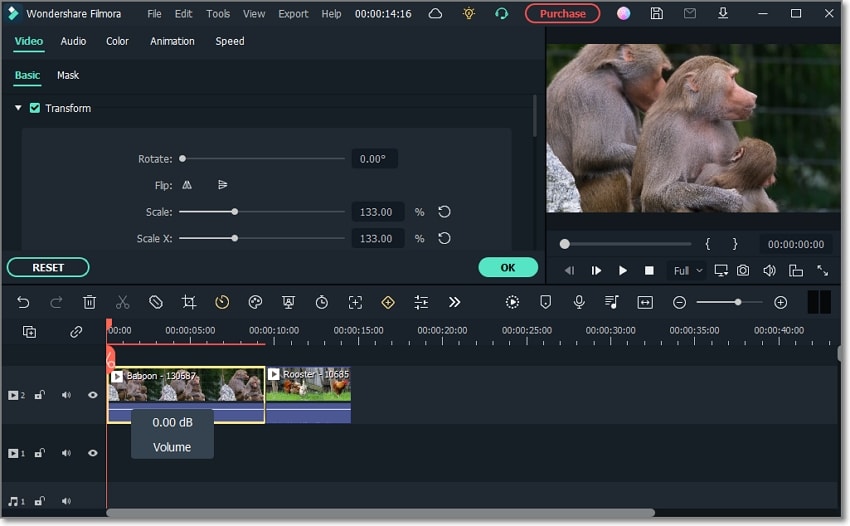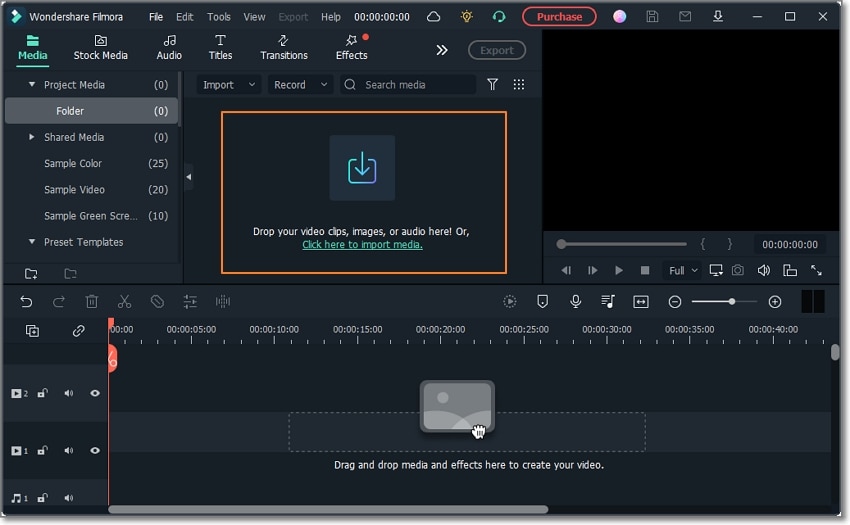![[Updated] Advancing Beyond VP9 A Look at AV1](https://thmb.techidaily.com/51b5c705b272c6a35f26cbee92033b8d25124b814164fccb1a1f598c30e520f7.jpg)
"[Updated] Advancing Beyond VP9 A Look at AV1"

Advancing Beyond VP9: A Look at AV1
The advancement in video technology means there are many video codecs to use. Today, you can use VP9, AV1 and other codecs on platforms like YouTube, Netflix, Facebook, Vimeo, and more. However, video codecs differ regarding file size, licensing, quality, and more. Now this brings us to the exciting AV1 vs VP9 comparison. These two are currently some of the most widely used video codecs, especially on YouTube. So, which one should you use? Should you stick to the trusted VP9 or the brand-new AV1? This article helps you make the critical choice.
Part 1. What is VP9?
Released in 2013 by Google, VP9 is a free, open-source video codec that replaced VP8. This compression algorithm was released to compete with a licensed video codec. VP9 enjoys broad support among modern HTML5 web browsers. In fact, VP9 has been compatible with Android since version 4.4 KitKat. This codec is also compatible with iOS/iPadOS 14 or newer.
In the meantime, a 2014 comparison between VP9 and /AVC discovered that VP9 offers a 45% bitrate advantage over. Netflix also concluded in 2016 that VP9 could have the same efficiency after tweaking the parameters. So overall, VP9 supports lossless encoding of raw bitstreams, making it perfect for streaming videos in MP4 and WebM.
Part 2. What is AV1?
AV1 is a relatively new video codec by Alliance for Open Media, a consortium of which Google is a co-founder. Like VP9, it’s a royalty-free video codec, meaning you don’t have to pay licensing fee to use it. AV1 was developed to replace VP9, so expect it to be compatible with all VP9-supported platforms. Besides Google, the Alliance for Open Media also includes Netflix, Amazon, Cisco, Intel, Microsoft, and Mozilla.
The first AV1 version was released in 2016 but was held back due to unresolved critical bugs. Then in March 2018, the Alliance announced another release alongside software encoder/decoder. Although the codec is primarily designed to compete with licensed codecs like AVC, there are concerns that it may threaten the existence of other royalty-free codecs. But as a consumer, freebies are always a welcome addition.
Part 3. Detailed Comparison Between VP9 and AV1
For viewers to enjoy high-quality content without using a lot of resources, efficient video compression technology is a must. As it stands, both VP9 and AV1 are royalty-free codecs, meaning that they are 100% free to use. However, these codecs differ. Here is what we’ve gathered for the VP9 vs AV1 comparison:
Compatibility - VP9 has an edge
Both video compression techniques are relatively new, which AV1 being the latest. This means VP9 and AV1 are compatible with various HTML5 browsers and devices. Google says VP9 decoding is compatible with more than 2 billion endpoints, meaning you can open VP9 on Mozilla Firefox, Opera, Chrome, Safari, Edge, Android smartphones/TVs, and local media players.

But on the other hand, viewers might experience an “error” message when opening AV1 locally on your old PC. While Intel works around the clock to develop supported drivers, some may not be compatible with your old computer. But expect wider AV1 compatibility now that more tech companies like Meta, Samsung, and Apple have joined the Alliance for Open Media. Currently, YouTube and Netflix are already streaming some videos in AV1.
Performance - AV1 has an edge
Regarding practical performance, it’s widely agreed that AV1 has the upper hand over standard codecs like VP9, and VP8. According to a test by EpsosVox on Intel’s AV1 encoder, the codec showed higher performance efficiency than NVIDIA’s NVENC, OBS x264, and AMF by AMD. The test results showed that the AV1 encoder is 16% better than the competing encoders.
Another 2018 Facebook Engineering (now Meta) test showed that AV1 achieved 34% higher compression than VP9. The test also showed that AV1 is 50.3% and 46.2% better than the x264 main profile and x264 high profile. However, the test showed that AV1 requires a longer encoding duration than the current alternative due to the complexities involved.

Most importantly, Facebook suggested that AV1’s performance significantly increases with increased video resolution. This means viewers will enjoy a higher quality 8K and UHD/4K content when using AV1 than VP9 and other codecs. And yes, higher compressions by AV1 mean a smaller file size at the same bitrates as the VP9 codec.
Into the Future - AV1 is the Trend
You probably know that AV1 comes from VP9 and is having difficulties in widespread use due to longer decoding times. But things are different now.
In the year of 2022, AV1 hardware encoder made amazing progress in supports from graphics card manufacturers—August, Intel’s new Arc Alchemist GPUs integrates with AV1 encoding and the Intel Arc AV1 Encoder Easily Beats AMD and Nvidia.
YouTube Video: https://www.youtube.com/watch?v=LznXh5lkgB0
Soon in the September, NVIDIA unveiled the GeForce RTX® 40 Series of GPUs, which comes with Dual NVIDIA Encoders (NVENC) that is able to “cut export times by up to half and feature AV1 support”.

Let alone AV2 is upcoming in 3-5 years. There is no doubt that AV1 is the future trend.
Part 4. Which Editor Can Export an AV1 MP4 Video?
If you’re a YouTuber, it’s evident that AV1 is the best codec to use. This codec delivers faster upload and download speeds, thanks to the higher compression levels over VP9. And as said before, AV1 offers better video quality than VP9 and other codecs, something that will get viewers trooping to your channel.
For these reasons, use Filmora 11 to create MP4 AV1 videos on your macOS/Windows computer. It allows you to create SDR and HDR content for YouTube from MOV, 3GP, AVI, FLV, MTS, M2TS, and other standard video formats. After loading the video on this program, it presents you with various tools to trim, cut, split, merge, stabilize, apply color correction, and more. You’ll also access an extensive library with royalty-free content like sound effects, effect overlays, transitions, images, etc.
Apply these steps to create an MP4 AV1 video on Filmora 11:
Step1Customize video settings and upload a video

Install and run Filmora 11 on your computer, then select the video aspect ratio. For example, choose 16:9 (Widescreen) for YouTube videos. After that, start a New Project and click Import Media to load the video. Of course, you can load multiple videos and merge them later. Now move the video to the timeline by dragging.
Step2Edit the video to make it more appealing (optional)

As you may already know, thousands of videos are uploaded daily on YouTube. Therefore, your videos must look creative to attract views. So, trim, split, merge, and delete video clips. You can also click the Effects tab to add animated titles, intros, transitions, music, and more. In addition, double-tap the video timeline to add motion tracking, image stabilization, color correction, chroma key, and more. And don’t forget to add subtitle tracks using the Sound to Text feature.
Step3Export the video to MP4 AV1

Are you satisfied with the edited video? Click Play to preview it and apply further edits if needed. Then, tap Export and choose MP4 AV1 as the target format. Lastly, name your video and export it to your local drive. You can also click the YouTube tab to directly upload the video on the platform. And that’s it!
Part 5. FAQs About AV1 and VP9
What is the best video codec?
There’s nothing like the “best video codec” because it depends on user preference. Although it offers universal compatibility, its performance is far behind codecs like AV1, and VP9. Also, it’s a licensed video codec, one reason why YouTube stopped streaming.
How can I check the video codec on YouTube?
Checking the type of codec used to stream a YouTube video is relatively straightforward. Open the video and right-click the video screen. Then, click “Stats for nerds” to view the video codec, color, network connection speed, frames, and more.
How can I disable/disable AV1 playback on Firefox?
If you’re using Firefox 63.0 or newer, you can disable/enable AV1 support. To do that, open the browser, then type about:config before tapping Enter to search. Then, tap the I accept the risk button, then double-tap media.av1.enabled to change the Value to false or true.
Can I open AV1 videos on VLC?
You can open AV1 on VLC version 3.0.0, released on February 2018. Remember that VideoLAN, the developer of VLC Media Player, is a member of the Alliance for Open Media.
When will AV2 be released?
After multiple tests to compare AV1 and H.266, it was discovered that the former lags in numerous aspects. As a result, Alliance for Open Media had to go back to the drawing board to design AV2. But don’t expect this codec until at least 2024 to 2025.
Summary
We hope this AV1 vs VP9 comparison article has dispelled all your fears about using the AV1 codec. Although it’s okay to use VP9, AV1 offers superior compression while delivering higher image quality than VP9. So, use Filmora 11 to create your MP4 AV1 videos for YouTube.
Free Download For Win 7 or later(64-bit)
Free Download For macOS 10.14 or later
Free Download For macOS 10.14 or later
Also read:
- [New] 2024 Approved FB Content Design The Right Orientation for Your Videos
- 2024 Approved Comprehensive List of Premium Windows Edits Apps
- 2024 Approved Enhancing iPhones in Night Mode Silhouettes
- 2024 Approved How to Add Music to a Video on iPhone [3 FREE WAYS]
- 8 Ultimate Fixes for Google Play Your Xiaomi Redmi Note 12 Pro 5G Isnt Compatible | Dr.fone
- Best FREE & Premium Solutions: Superior Substitutes to InShot on Your Computer
- Canva's Hidden Gems for Crafting Visual Magic for 2024
- In 2024, Android Unlock Code Sim Unlock Your Samsung Galaxy S24 Ultra Phone and Remove Locked Screen
- In 2024, How To Remove Flashlight From iPhone SE (2020) Lock Screen
- In 2024, How to Unlock Honor 100 Pro Phone with Broken Screen
- New 2024 Approved Virtualdub The Good, the Bad, and the Best Alternatives for You
- Overcome Forza Horizon 5 Constant Buffering Issues with These 7 Proven Fixes
- Title: [Updated] Advancing Beyond VP9 A Look at AV1
- Author: Steven
- Created at : 2024-11-21 00:31:41
- Updated at : 2024-11-27 17:21:17
- Link: https://fox-access.techidaily.com/updated-advancing-beyond-vp9-a-look-at-av1/
- License: This work is licensed under CC BY-NC-SA 4.0.